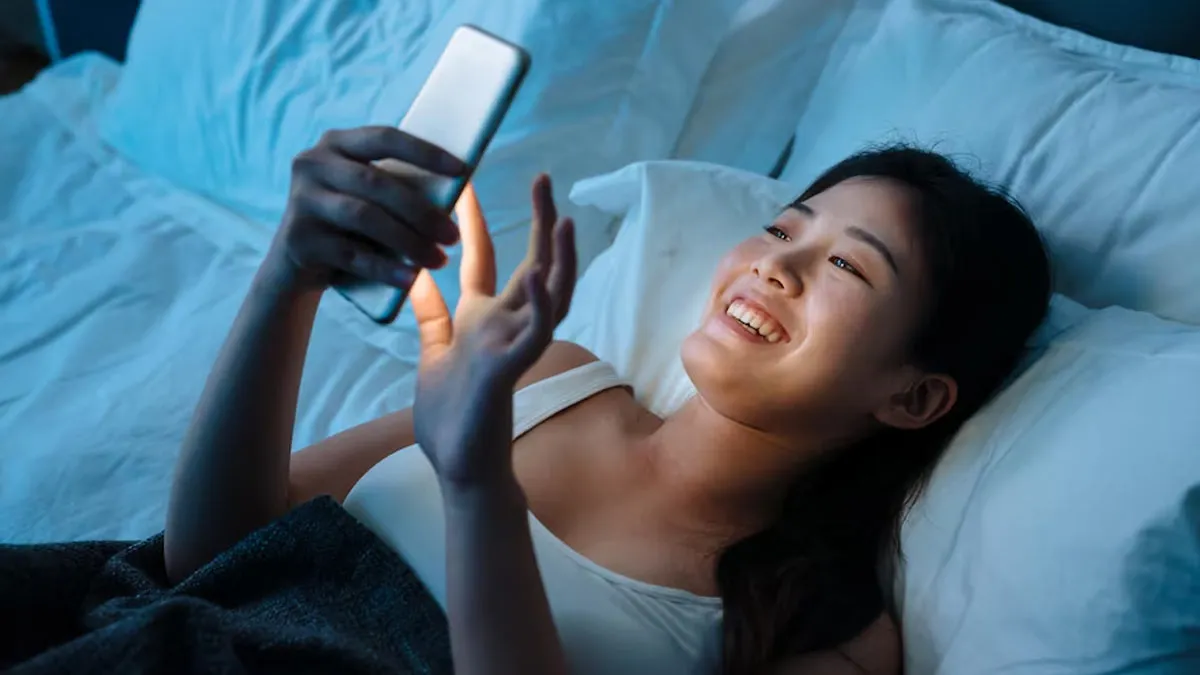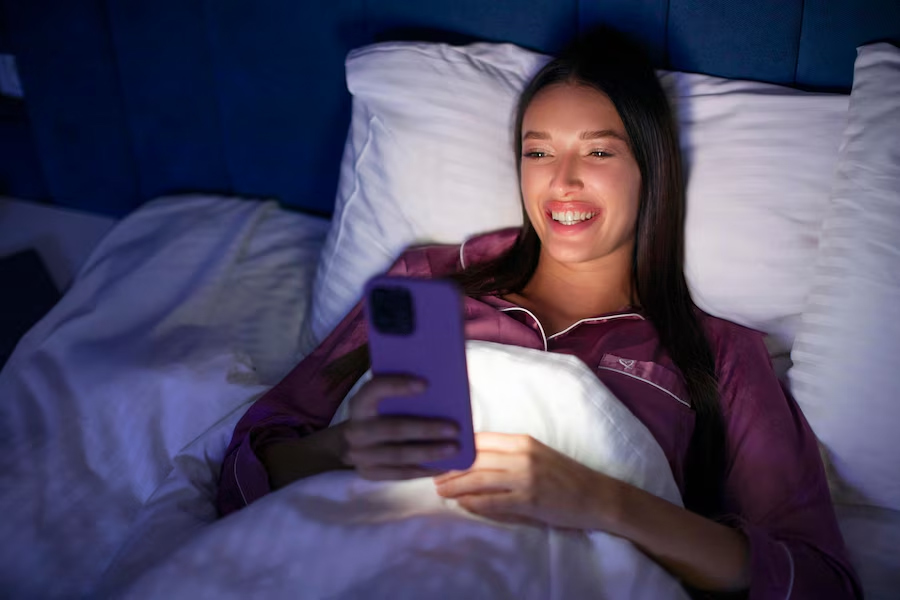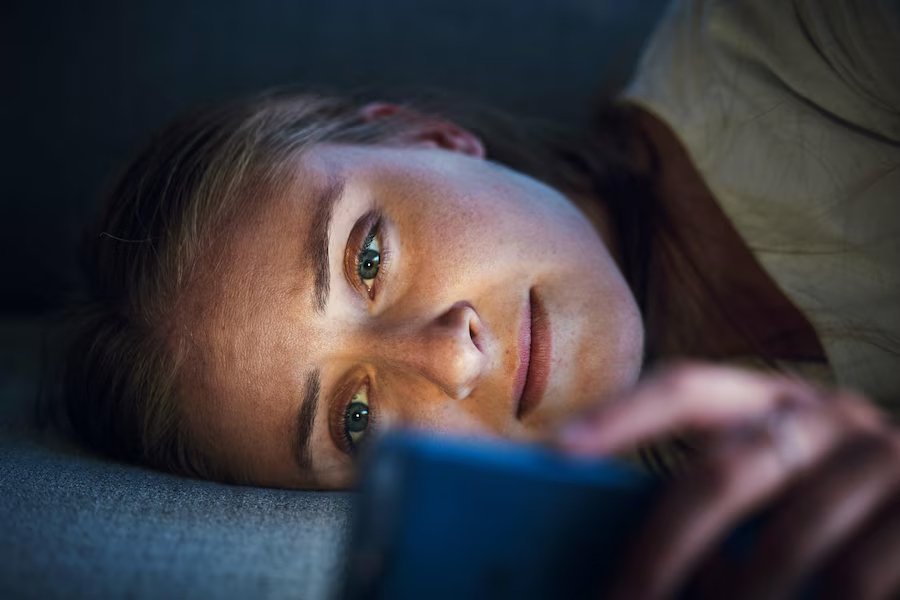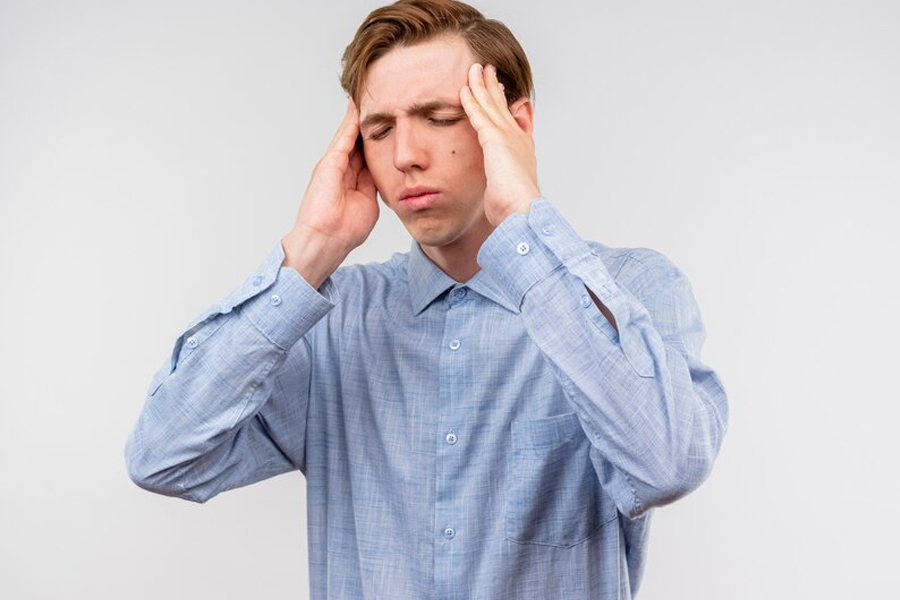
Do you often find yourself scrolling through social media late at night, promising to stop after just one more video? But before you know it, an hour has passed, and sleep feels out of reach. Late-night screen time might seem like a harmless habit, but it can seriously impact sleep quality, mood, and overall health. We spoke to Dr Santosh Bangar, Senior Consultant Psychiatrist, Gleneagles Hospitals, Parel, Mumbai, who explained the impact of late-night screen time on sleep and overall health.
Table of Content:-
Impact of Late-night Screen Time On Sleep and Overall Health

"Late-night screen time can damage your sleep schedule and quality. Excessive screen time can make you tired, restless, cranky and irritable the next day. Other downsides of late-night screen time include difficulty sleeping, mood swings, weakened immunity, high stress levels, and weight gain," said Dr Bangar.
The blue light from screens interferes with melatonin production, making it harder to fall asleep while stimulating content keeps the brain in overdrive. Over time, this can lead to fatigue, stress, and even long-term cognitive issues.
How Scrolling Reels Before Bed Affects the Brain
"Your brain stays on alert mode instead of winding down when you are busy scrolling reels online before going to bed. It can further increase the levels of dopamine and adrenaline which can make it challenging to relax. This can cause overthinking, depression, delayed sleep schedule, poor concentration, and mental exhaustion," explained Dr Bangar.
Also Read: #AskTheExpert: Are Instagram Reels and Memes Affecting Your Mental Health?
Link Between Blue Light From Screens And Melatonin Production
The blue light from electronic gadgets can affect melatonin production and sleep cycle. Melatonin, a sleep hormone secreted by the brain, can get blocked due to blue light making it difficult to fall asleep on time. It can not only affect your sleep but also cause insomnia, frequently waking up in between and morning fatigue.
According to Harvard Health Publishing, blue light exposure suppressed melatonin for about twice as long as green light and shifted circadian rhythms by twice as much.
Impact of Consuming Emotional or Engaging Content at Night

Watching stimulating, intense, dramatic, or emotional content before bedtime can trigger stress hormones. This further leads to increased anxiety, nervousness, overthinking, disturbed sleeping patterns, and even nightmares.
Does Doom Scrolling at Night Contribute to Mental Health Issues?
“Constantly watching negative news or content on a loop at night can make you sad, worried, stressed, irritated, frustrated, and agitated. This restlessness can make it difficult to fall asleep, resulting in depression or insomnia,” added Dr Banger.
Also Read: Late-Night Social Media Use May Cause Hypertension: 7 Tips For Mindful Scrolling
How Does It Impact Memory, Focus, and Cognitive Function

Endless social media scrolling at night can have adverse effects on your memory, focus, and cognition function. Poor sleeping patterns due to social media can weaken your focus, slow reflex actions, forgetfulness, lack of motivation, brain fog and difficulty in decision-making.
Long-term Consequences of Regularly Scrolling Reels Before Sleeping
The long-term consequences of late-night scrolling can include sleep issues, chronic fatigue, weakened memory, reduced attention span, cardiovascular diseases, increased stress, lower productivity, hormonal imbalance and obesity.
What You Should Do
Here are some measures listed by Dr Banger to help limit late-night screen time:
- Establish strict guidelines or a screen curfew of at least three hours, especially before bedtime.
- If you are looking for entertainment to help you fall asleep, try reading a book instead.
- Listening to calming music can also be helpful.
- Always use a night mode and avoid watching stimulating content.
[Disclaimer: This article contains information provided by an expert and is for informational purposes only. Hence, we advise you to consult your professional if you are dealing with any health issue to avoid complications.]
Also watch this video
How we keep this article up to date:
We work with experts and keep a close eye on the latest in health and wellness. Whenever there is a new research or helpful information, we update our articles with accurate and useful advice.
Current Version
